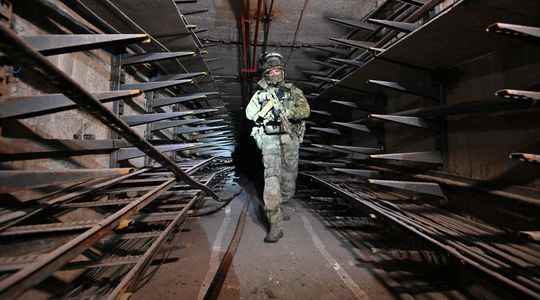The phrase seems to come straight out of the mouth of an adviser to Vladimir Putin, about the destroyed Russian tanks in Ukraine: “We have seriously underestimated the power of NATO’s anti-tank weapons.” But it is pronounced by a Soviet general in a military thriller published in 1986, red storm. Its author, Tom Clancy, describes a high-intensity conflict hitting the European continent for the first time since the Second World War.
More than three decades later, the course of the Russian invasion of Ukraine echoes, in many respects, the novel from the imagination of this American writer with record sales – more than 100 million copies sold. before his death in 2013. Disturbingly, the Kremlin’s approach to war there is much the same as it is today, as are some of the realities facing the Russian military. And for good reason: “It has not changed so much, whether in terms of its equipment, its organization or its philosophy”, notes historian Alexandre Jubelin, producer of Collimateur, podcast of the Research Institute strategy of the military school.
In both cases, Moscow is building its offensive on lies. While Putin justifies his attack on kyiv by a “genocide” carried out by a regime to be “denazified”, Tom Clancy imagines a Soviet invasion launched following a KGB operation under a false flag, a “maskirovka”: schoolchildren in visit to the Kremlin are killed in an attack attributed to West Germany.
A “classic” but not a prophecy
In red storm, Ukraine is still part of the USSR. And if the Politburo decides to invade Western Europe, it is above all to neutralize NATO and seize the oil reserves of the Persian Gulf, following the destruction, by Azeri Islamists, of an important complex oil tanker in Siberia, causing a severe energy shortage.
Conversely, Vladimir Putin does not lack oil and gas. But the difficulties of his army echo those of the Soviets of Tom Clancy: communications picked up by NATO allowing the elimination of generals on the front; faulty equipment; a lack of coordination between the arms and, finally, a lack of initiative on the front. “To deviate from the plan, even a theater commander had to ask permission,” a senior officer complained.
red storm however, is not a prophecy. The war does not settle there in the long term, unlike Ukraine. As the Red Army bogs down on the German front, the Kremlin plans to resort to a tactical nuclear weapon before being overthrown by a coup leading to a cessation of fighting. As today, the use of the bomb remains taboo.
At the time, the technical meticulousness of the novel had conquered Ronald Reagan. The American president had recommended him to British Prime Minister Margaret Thatcher. Recently, this “classic” inspired a critically acclaimed thriller, The Ghost Fleet, by August Cole and Peter W. Singer (Folio, 2022). The book imagines the United States undergoing a “digital Pearl Harbor” from a technologically superior China. A warning to ponder.
